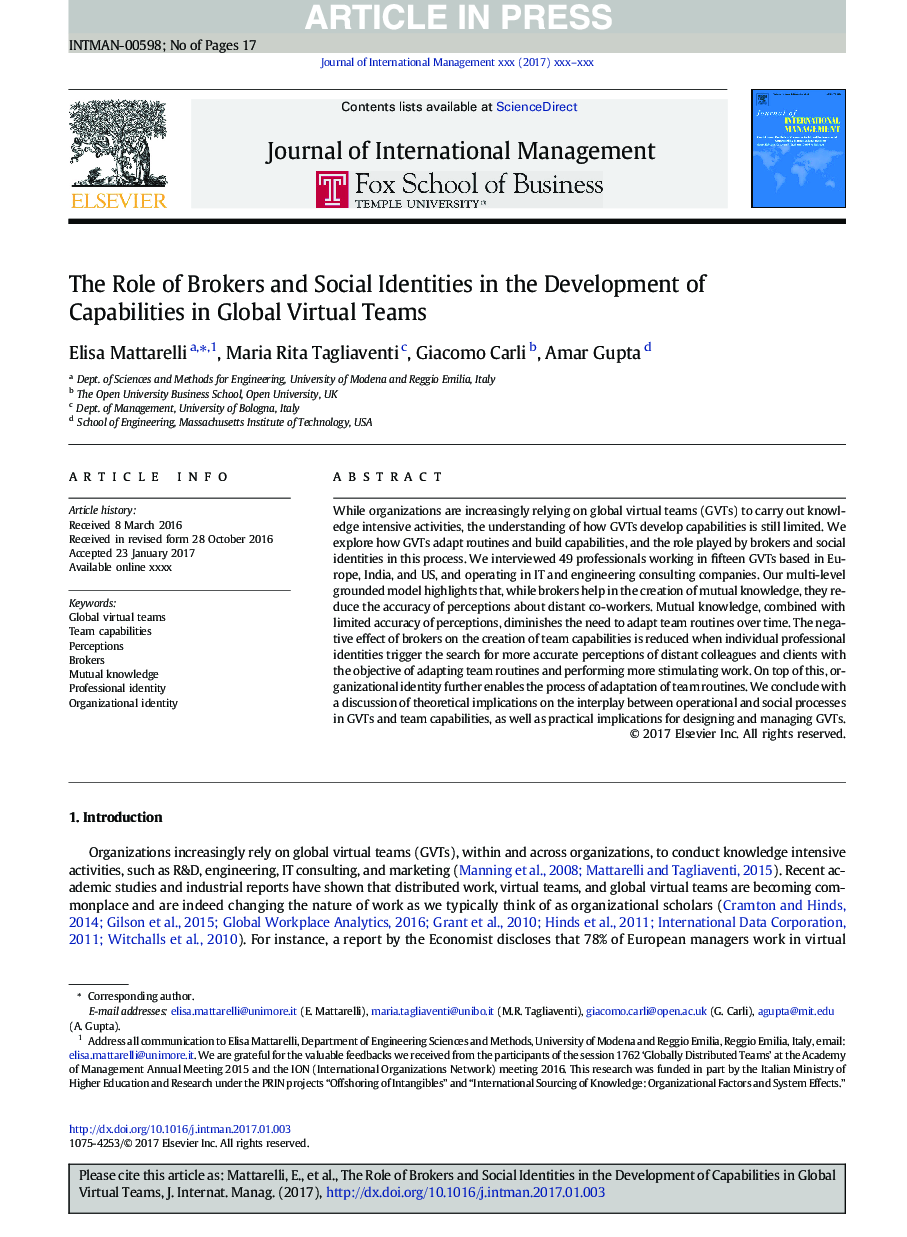| Article ID | Journal | Published Year | Pages | File Type |
|---|---|---|---|---|
| 7426557 | Journal of International Management | 2017 | 17 Pages |
Abstract
While organizations are increasingly relying on global virtual teams (GVTs) to carry out knowledge intensive activities, the understanding of how GVTs develop capabilities is still limited. We explore how GVTs adapt routines and build capabilities, and the role played by brokers and social identities in this process. We interviewed 49 professionals working in fifteen GVTs based in Europe, India, and US, and operating in IT and engineering consulting companies. Our multi-level grounded model highlights that, while brokers help in the creation of mutual knowledge, they reduce the accuracy of perceptions about distant co-workers. Mutual knowledge, combined with limited accuracy of perceptions, diminishes the need to adapt team routines over time. The negative effect of brokers on the creation of team capabilities is reduced when individual professional identities trigger the search for more accurate perceptions of distant colleagues and clients with the objective of adapting team routines and performing more stimulating work. On top of this, organizational identity further enables the process of adaptation of team routines. We conclude with a discussion of theoretical implications on the interplay between operational and social processes in GVTs and team capabilities, as well as practical implications for designing and managing GVTs.
Keywords
Related Topics
Social Sciences and Humanities
Business, Management and Accounting
Business and International Management
Authors
Elisa Mattarelli, Maria Rita Tagliaventi, Giacomo Carli, Amar Gupta,
